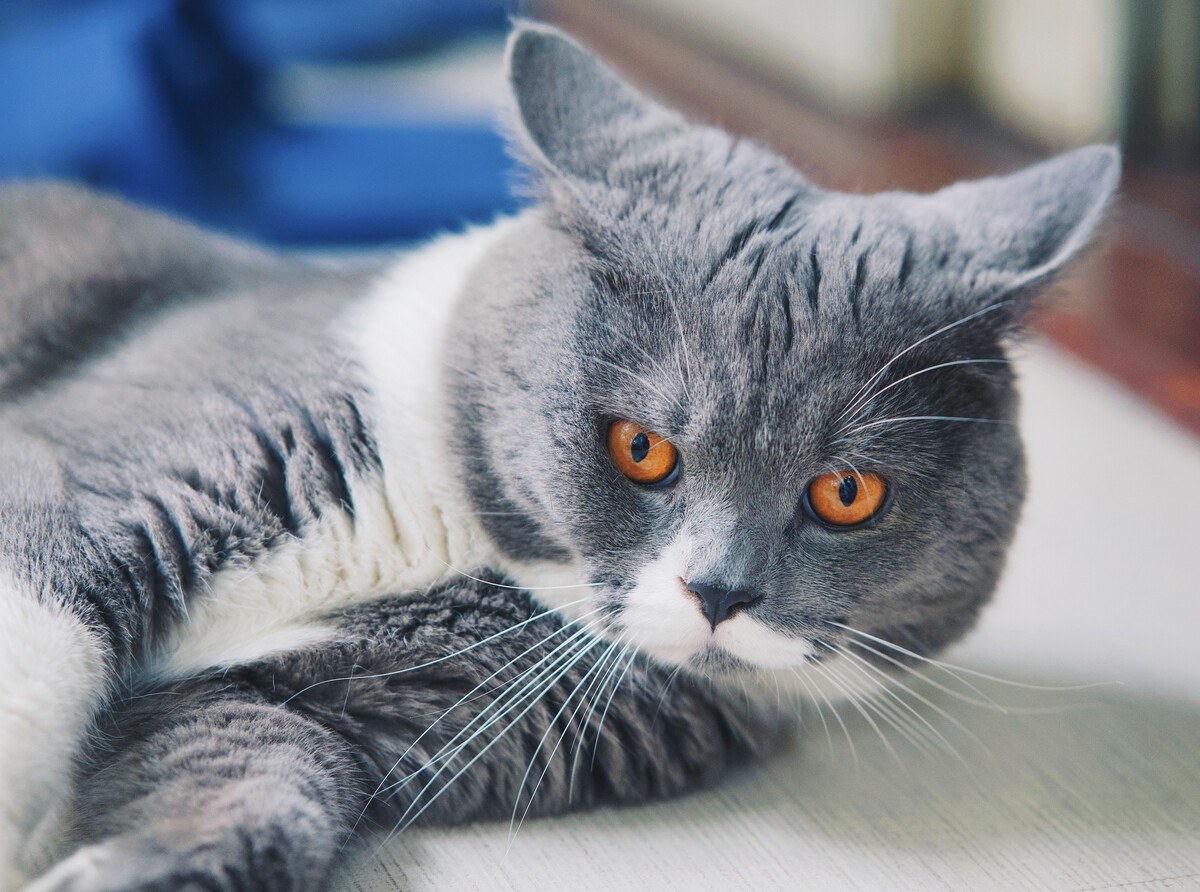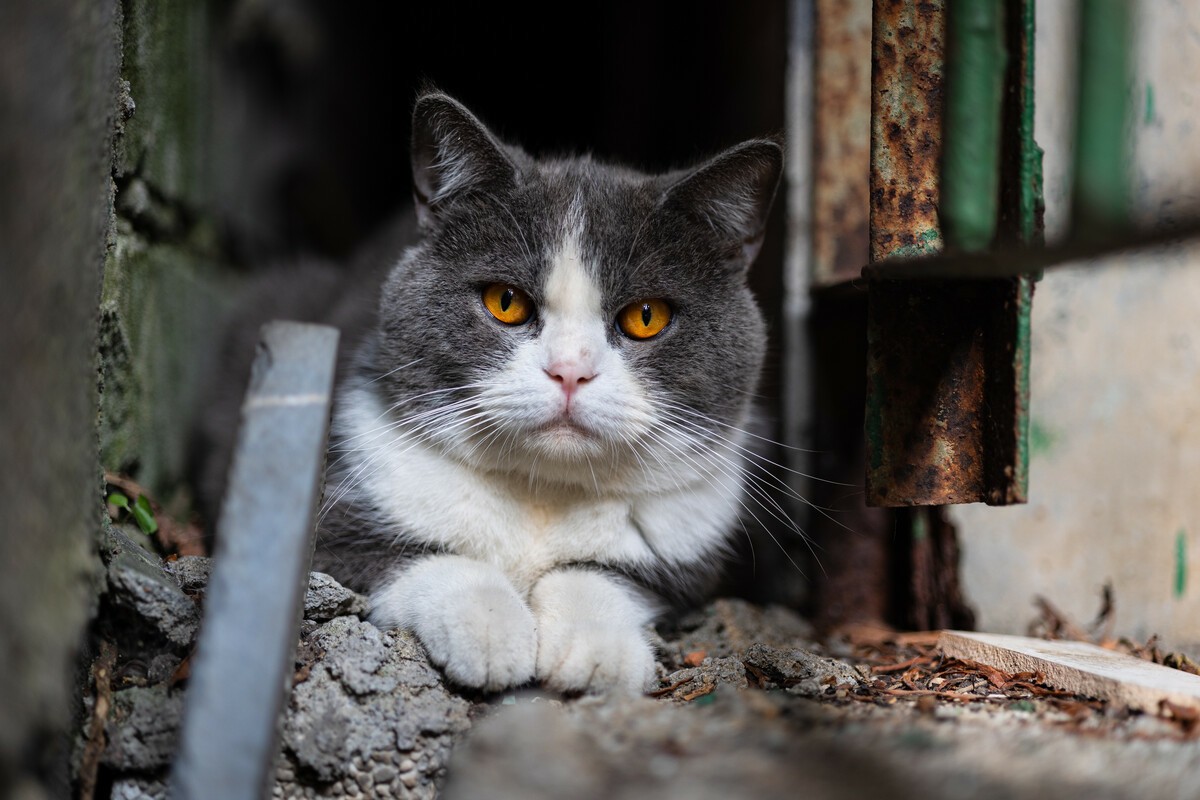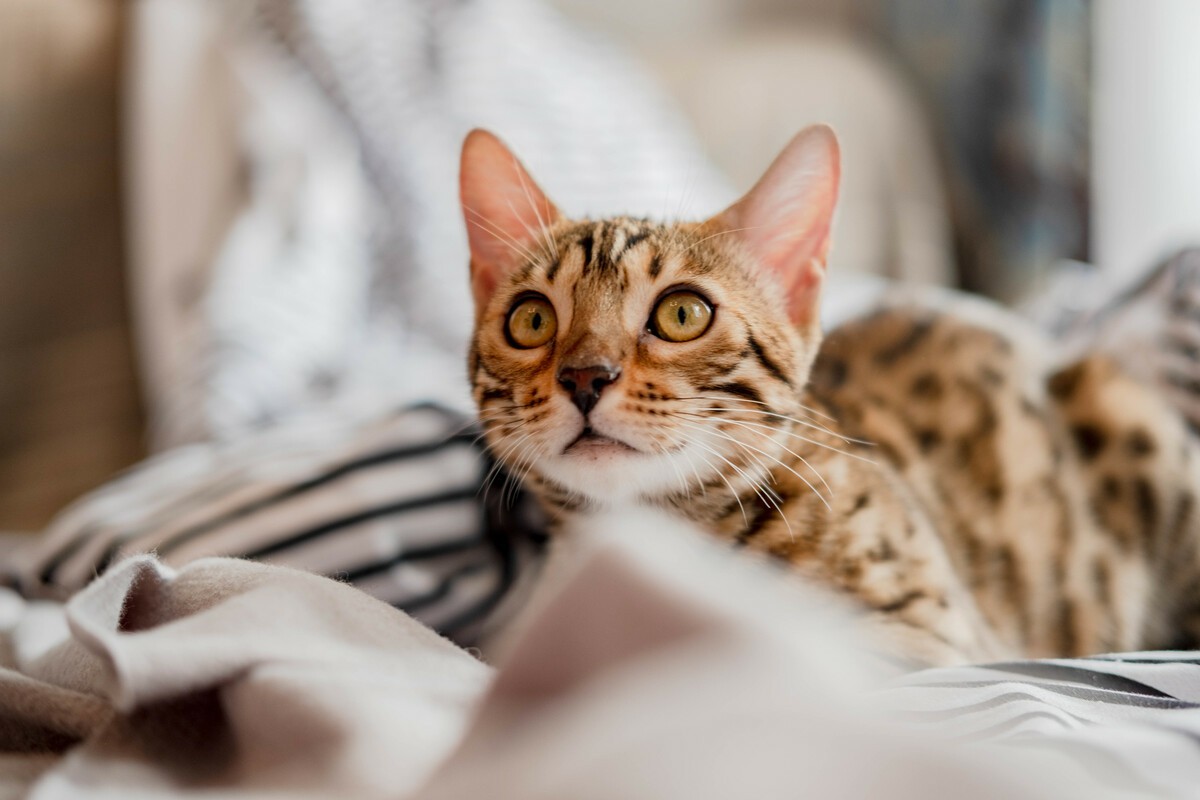There is no doubt that a cat looks for some private spaces and likes to hide when things are crazy in the house. Some cats naturally find such spaces in the house that even you haven’t seen before, and hideaway for some personal time or naps.
Moreover, the British Shorthair is shy but very playful. He can be running and hiding just because he wants to play with you.
As finding him hiding in the dark spaces can be normal, but also you have to pay attention to his behavior. If you notice something strange like, he is not hiding normally as before or spending more time under the shelter, then you have to be concerned.
Besides, stress, uneasy environment, poor socialization, new family, trauma, or fear can be the reasons behind him hiding in the small dark spaces.
Also, there are other factors due to which British Shorthair is seeking to hide. Let’s explore them!
Why Is My British Shorthair Hiding In Small Dark Spaces?

Like we humans need a break sometimes, in the same way, cats also need a break. However, if British Shorthair is hiding in the places that he hadn’t explored before, then he can be in emotional, or mental trauma.
Nevertheless, there are such aspects of his behavior, which are normal and you don’t have to worry about it.
Uneasy/Negative Environment
As I said earlier, the British Shorthair is very playful. If he is hiding then it can be due to boredom. If an owner has no time to entertain their cat, then boredom can occur.
If you leave your shorthair alone for too long, he doesn’t get enough environmental enrichment to keep himself physically and mentally active and stimulated.
Moreover, you must make your British Shorthair a priority. Play with him several times a day. Give your shorthair enough toys, or else he will sneak away in a dark corner of a room and put himself in depression which you don’t want, do you?
Stress
If your shorthair wants to be alone out of nowhere, then he can be stressed or overstimulated. When he is overstimulated, he becomes overwhelmed and seeks to hide.
Furthermore, like under-stimulation make your shorthair hide, similarly, overstimulation also affects him in the same way. If there are more people around, or you are spending too much time with him, then that will affect him.
It’s better if you spend the required time with your shorthair and help him relax. Also, you must be aware of potential symptoms of stress and quickly consult your veterinarian.
Poor Socialization
Even your shorthair is happy and normal around you, he tends to hide when there are visitors. This is due to poor socialization. It makes him think that the visitors are threatening his territory and he seeks shelter. The same goes for when there are other animals.
Therefore, he must have social skills, or else this leads to behavioral issues later in life.
Critical Period of Socialization
Poor socialization is due to a lack of training or inadequate training when he was a small kitten. This is why you must never take a kitten away from his mother and siblings before the right time.
The time between the first 4 weeks and 12 weeks of a cat’s life is a critical period for socialization. During that period, they learn and understand how to interact and socialize with others.
New Home and New Family
For us, moving to a new home becomes so stressful due to packing and so much more, right? And, for cats, it’s even more stressful. They have to move from the territory they have dominated into a whole new environment.
So, if your British Shorthair is new, then don’t force him to come out. Have patience and let him be comfortable. Shower more love and ensure that he is in a comfortable environment.
Also, did you bring a new pet home or a newly born baby? Because, if you did then you must know such small changes affect your shorthairs and they don’t eat and hide. You must understand that indoor cats are very sensitive to drastic changes.
Fear and Emotional Trauma
If your British Shorthair sees objects that may be threatening to him, or hear loud noises, then he hides out of fear. Common household noises like a vacuum cleaner, blenders, hairdryers, drills, fire alarm, etc. can scare him and he runs to safety. You must avoid such noises and must not scare your shorthair on purpose.
Moreover, the cat you have adopted can have mental and physical scars. If he was not born in your home and you don’t know the history, then your shorthair’s past life might have been one of the significant trauma.
If you doubt your shorthair is hiding out of fear of getting beaten or attacked, then you should quickly contact an animal behavioral specialist.
Multi-Cat Household
To help your British Shorthair get the right kind of stimulation and socialization, a companion can be a great idea.
However, as I mentioned prior, a cat can be very sensitive to changes. Not introducing the companion correctly to your shorthair can affect him. He will be worried about how to deal with them and will hide in fear.
So, stay with your shorthair and help him adjust to the modified lifestyle.
Pregnancy
When your shorthair is pregnant and is hours before the labor, she will search for the place to give birth. Sometimes, the spot is selected in advance.
Besides, she will hide for shelter and protection. Even after giving birth, she will stay with her kittens for several weeks, and only come out to eat or to make sure the location is in a good hiding place.
End of Cat’s Life
When your shorthair is old and near to death, he will feel vulnerable and tends to find quiet spaces to spend his last days.
Moreover, a cat also hides to avoid becoming prey. In wild, a sick or old cat hides to avoid being found. He will die in peace than be a victim of an attack.
How Can I Help My British Shorthair?

If you are not sure why your British Shorthair is hiding, then it’s better to take the vet’s advice. However, you must respect your shorthair’s personality and give him space. Even if you want your shorthair to come out, do not yell at him. Instead, try to coax him out with toys and treats.
Also, you can follow the guidelines below to help your feline:
Take Care of Cat’s Initial Treatment
When you bring a cat home, make sure he has adequate preventive medicines. If your shorthair is adopted from an animal shelter, they must have taken care of his initial treatment, before letting you bring him home.
Nonetheless, you also have to take care of his initial treatment. Make sure you follow the vaccination and take him to the vet every 6 months even he seems healthy.
Provide Positive Environment
Give your shorthair an easy environment. Don’t let him suffer from stress, overstimulation, as well as under-stimulation. Take out some time and play with him. Provide food timely, provide enough litter boxes, and toys, and scratching post. Just make him comfortable.
Socialize with Your British Shorthair
your shorthair needs company. You must make sure if he has enough interactions to feel loved and happy.
What Are the Dangerous Hiding Spots For the Cat?
While some hiding spaces are normally safe, but some areas can put your British Shorthair at risk.
- Washing machines
- Clothes dryers
- Under reclining chairs
- Fireplace
- Bushes and wooded areas (risk of predators)
- Car garage (risk of chemicals, gas, oil, garden tools, etc.)
- Underneath parked vehicles (risk of getting under tire)
To prevent your shorthair from any danger, simply, close the laundry rooms, seal the fireplace, and lock the garage door.
Frequently Asked Questions:
Why Do Cats Love Small Spaces?
Cats love small spaces like drawers, sinks, and also boxes because, those places make them feel safe and secure. Also, they like to curl up in a small spate to conserve body heat and also to hide from potential threats.
How Long a Cat Stays Hiding?
A cat stays hiding for 2 weeks on average. As long as he is eating, using bathrooms, not showing any signs of illness, and no strange behavior, then give him some time and let him stay in his hiding spot.
Can an Abused Cat Recover Ever?
Depending upon the cat’s temperament, age, and condition, he can be helped and he can be a loving pet again. You can provide him a safe environment where he is never again abused.




